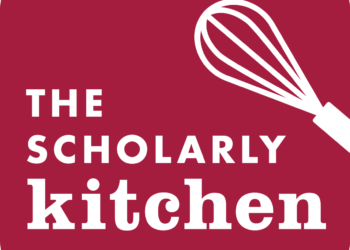We’re off for the holidays and won’t return with new posts until January 2. With things shutting down for the end of the year, it’s a good time to take a look back at the year as we finally get around to washing all the pots and pans.

Maybe that picture better represents the old Kitchen, rather than our new digs that we moved into back in January.

There, that’s better. Hopefully you’ve been enjoying the new design. The back end is much easier to manage, and the SEO improvements seem to have paid off in improved referrals and traffic (see below).
This year we added Siân Harris as an author, and she’s already helping us extend our geographic reach, bringing in voices from underrepresented regions of our industry (if you haven’t yet read her post on diversity that interviews researchers from Asia, Africa and Latin America, it is one of the best things we published this year). Tim Vines also rejoined us after a four year adventure in the world of publishing startups.
We published 243 posts this year, which inspired 2,888 comments (all numbers as of the writing of this post, December 20). The site saw 1,353,732 page views, an 8.7% increase over last year. August 2 was our most viewed day ever, as Roger Schonfeld’s post on Elsevier’s acquisition of BePress sparked the interest of nearly 10,000 readers that day alone. Our readership is predominantly in the US (49%), and the UK (17%), followed by a long tail of countries all the way down to those where only one article was read in the last year (Aland Islands, Tonga, Cuba, Cook Islands, Gabon, Palau, Falkland Islands and Mauritania).
Our most read posts during 2017 were:
- Sci-Hub: How Does It Work?
- As PLOS ONE Shrinks, 2015 Impact Factor Expected to Rise
- Elsevier Acquires BePress
- Scientific Reports Overtakes PLOS ONE As Largest Megajournal
- A Confusion of Journals — What is PubMed Now?
- Cabell’s New Predatory Journal Blacklist: A Review
- Scientific Reports On Track to Become Largest Journal In The World
- When the Wolf Finally Arrives: Big Deal Cancelations In North American Libraries
- Sci-Hub Moves to the Center of the Ecosystem
- ResearchGate: Publishers Take Formal Steps to Force Copyright Compliance
If we limit the list to posts that went live in 2017, it is as follows:
- Elsevier Acquires BePress
- Scientific Reports Overtakes PLOS ONE As Largest Megajournal
- A Confusion of Journals — What is PubMed Now?
- Cabell’s New Predatory Journal Blacklist: A Review
- When the Wolf Finally Arrives: Big Deal Cancelations In North American Libraries
- Sci-Hub Moves to the Center of the Ecosystem
- ResearchGate: Publishers Take Formal Steps to Force Copyright Compliance
- Citation Cartel Or Editor Gone Rogue?
- PLOS ONE Output Drops Again in 2016
- Citation Performance Indicators: A Very Short Introduction
Search engines were our most common referrer (39%) followed by Twitter (4.3%) and Facebook (1.7%). The continuing wide interest in journal metrics (and PLOS ONE) shown above is reflected in the most common search terms used to reach the site, mainly variations on the terms “Scholarly Kitchen”, “Sci-Hub”, and “PLOS ONE impact factor”.
Lifetime, we have seen 9,270,393 page views, so we should surpass the 10 million mark sometime in 2018. We’ll see you in January, happy holidays to all.
Discussion
5 Thoughts on "The Year in Review: 2017 On The Scholarly Kitchen"
Sorry, but the picture of the new kitchen looks decidedly fake to me. Happy holidays!
Congratulations on another successful year chefs. Enjoy your festive break and look forward to more great content in 2018.
As the author of the second-most read post in 2017 (As PLOS ONE Shrinks, 2015 Impact Factor Expected to Rise), I’m rather embarrassed because my prediction was both wrong and outdated. The only explanation of why this post retains a top-10 position is because it includes key title words “PLOS ONE” and “Impact Factor.” This underscores just how important journal metrics are to authors of papers published in megajournals, in spite of the deliberate position its publisher takes to the contrary.
The old kitchen looks almost exactly like the one left by bad tenants in a rental house I used to own. Look forward to an even better 2018.
My only comment about that new kitchen picture is a Yogi Berra paraphrase: “Nobody eats there; it’s too clean.”
Thanks for the readout on what’s been popular, David. I’m embarrassed to say I missed one of those posts! Hence a value for these kinds of lists.
Enjoy your break, chefs. I know I’m going to. (Couldn’t resist the double entendre.)



